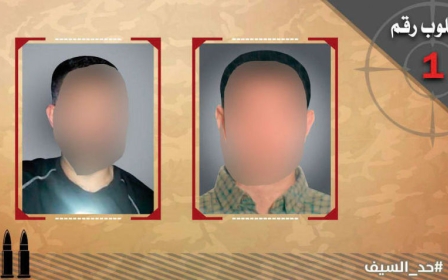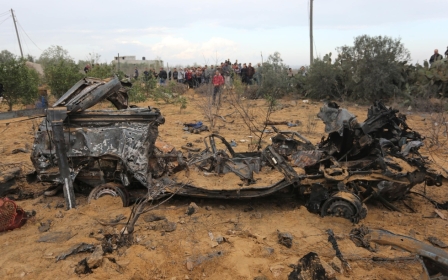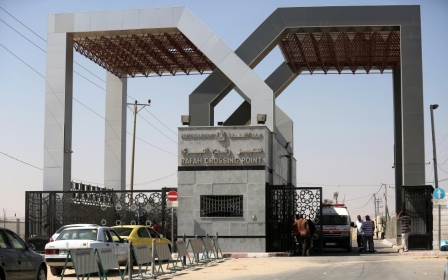Hamas says botched Israeli Gaza raid aimed to bug communications

The military wing of Gaza's Hamas rulers said on Saturday that the aim of a botched undercover Israeli operation in the Palestinian enclave was to plant spying devices in their communications network.
The 11 November special forces operation, which Israel said was an intelligence-gathering mission, turned deadly when the undercover soldiers were spotted near Khan Yunis in the southern Gaza Strip.
The ensuing firefight claimed the lives of an Israeli army officer and seven Palestinians, including a local Hamas military commander.
The force entered Gaza from Israel through an opening in the fence on a foggy night in an undisclosed wooded area, after almost a year of training, from January to October of 2018. They allegedly used fake Gazan IDs and had forged documents of humanitarian workers, Haaretz said.
A spokesman for the Ezzedine al-Qassam Brigades said the 15 members of an elite Israeli military unit travelled in the enclave using cars disguised as vehicles belonging to a local charity, according to AFP.
Their goal was "establishing a spy system to eavesdrop on the communications network of the resistance in the Gaza Strip", Abu Obeida said, showing video footage of what he said was the soldiers in action.
Hamas also managed to capture equipment used by the group, Abu Obeida added, promising a million-dollar reward to anyone who would supply Hamas with the identities of the Israeli special forces team.
Hamas political bureau chief Ismail Haniyeh said last month that his organization obtained “a security technology asset that is a real treasure” when it disrupted the Israeli operation. Haniyeh said that what Hamas captured exposed the Israeli military's operating methods, which will have “implications in the war of minds” between Israel and Hamas, Haaretz reported.
The Israeli soldiers had been in and out of Gaza several times, Hamas said, and operated not only there but in other countries in the Middle East. According to Abu Obeida, one of them had stayed in Gaza for several days before the operation under the guise of an aid worker, Haaretz reported. They had rented a guest room near the Khan Yunis beachfront, in southern Gaza, which they used as their assembly point.
On Tuesday, Hamas said it had arrested 45 Gazan "collaborators" with Israel after the Khan Yunis incident.
Hamas already published photos of eight people and two vehicles it said were linked to the operation, prompting the Israeli army censor to appeal to the public and media not to republish the images.
Israel's military has not released details about the operation that led to the heaviest round of cross-border fire, including Hamas rockets and Israeli airstrikes, since a 2014 war between the two sides, the New York Times said.
A 13 November ceasefire brokered by Egypt ended the fighting that had raised fears of another war between Israel and Palestinian militants in Gaza.
Hamas and its allies have fought three wars with Israel since 2008 and the Gaza Strip has been under an Israeli blockade for more than a decade.
Israel says the measure is necessary to isolate Hamas and prevent it from obtaining weapons, though critics say it amounts to collective punishment of the territory's two million residents.
Gaza rocket
In a related development, Palestinian fighters in the Gaza Strip fired a rocket at Israel late Saturday, Israel's army said, and retaliatory strikes were launched as tensions rose following another day of violent border clashes.
Two targets in Gaza City were hit by the Israeli strikes and no one was harmed, security sources in Gaza said.
New MEE newsletter: Jerusalem Dispatch
Sign up to get the latest insights and analysis on Israel-Palestine, alongside Turkey Unpacked and other MEE newsletters
Middle East Eye delivers independent and unrivalled coverage and analysis of the Middle East, North Africa and beyond. To learn more about republishing this content and the associated fees, please fill out this form. More about MEE can be found here.




